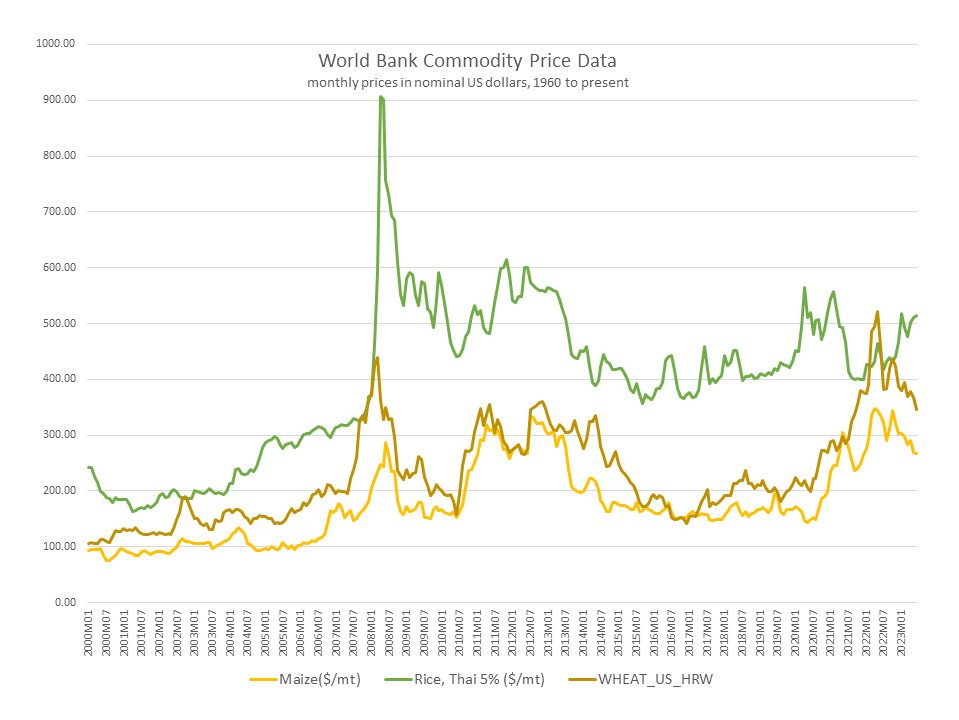Pick Up
830. Uncertainty in the Global Food Market

830. Uncertainty in the Global Food Market
Russia's withdrawal from the Black Sea Grains Initiative on July 17 has increased uncertainty about food supply disruptions from Russia and Ukraine. Both countries are major producers and exporters of grains such as wheat, corn, and sunflower oil, and these trends in global food prices are a cause for concern.
More recently, it was reported that India, the world's largest exporter of rice, another major staple, announced on July 20 that it would restrict exports of rice other than basmati rice.
On July 25, the International Food Policy Research Institute (IFPRI) published a blog expressing concern that export restrictions could threaten global food security through supply disruptions and price increases in the global rice market.
International rice prices initially stabilized when other grain prices spiked after the Russian-Ukrainian war began at the end of February last year, but have risen by 15-20% since September 2022. The Indian government is seeking to curb domestic rice prices, which have risen 30% since October 2022, but there are concerns that this will have an immediate impact on the international rice market, as the targeted rice accounts for 75-80% of India's rice exports.
India is the world's largest rice exporter, accounting for 40% of the global rice market in recent years. Rice is one of the most consumed cereals in the world, accounting for a large proportion of calorie consumption in many countries, particularly in Asia and parts of Africa. The new export control measures could have a significant impact on food-importing countries already facing uncertainty due to the Russia-Ukraine issue.
IFPRI noted that the impact of India’s export restrictions on international rice prices depends on several complex factors. These factors include the duration of export restrictions, the extent to which the El Niño phenomenon or positive Indian Ocean Dipole affect the monsoon season and lead to a reduction in rice production in South and Southeast Asian region, and whether India’s actions will spill over to other rice exporting countries.
Geopolitical factors, developments in major exporting countries, the impact of extreme weather events, and the responses of exporting and importing countries to these events have a major impact on world food prices and global food security. The global food crisis triggered by the 2008 food price spike led to hoarding and riots in grain-import dependent developing regions and exacerbated political instability in these regions. It has been pointed out that not only geopolitical factors and extreme weather conditions, but also the timing of policies and responses by major exporters in world trade contributed to food price spikes in these countries. For example, in the case of rice, which experienced a particularly sharp price spike, several countries followed suit after the governments of Vietnam and India imposed export restrictions in October 2007 in response to tight domestic demand for rice in the face of rising world wheat prices, which reportedly led to hoarding and stockpiling in many rice-importing countries, starting with the Philippines and Nigeria. Once again, the situation was affected by a number of uncertainties. Again, amidst various uncertainties, the international community must work together to avoid disruptions in the global food supply chain.
Contributor: IIYAMA Miyuki (Information Program)
